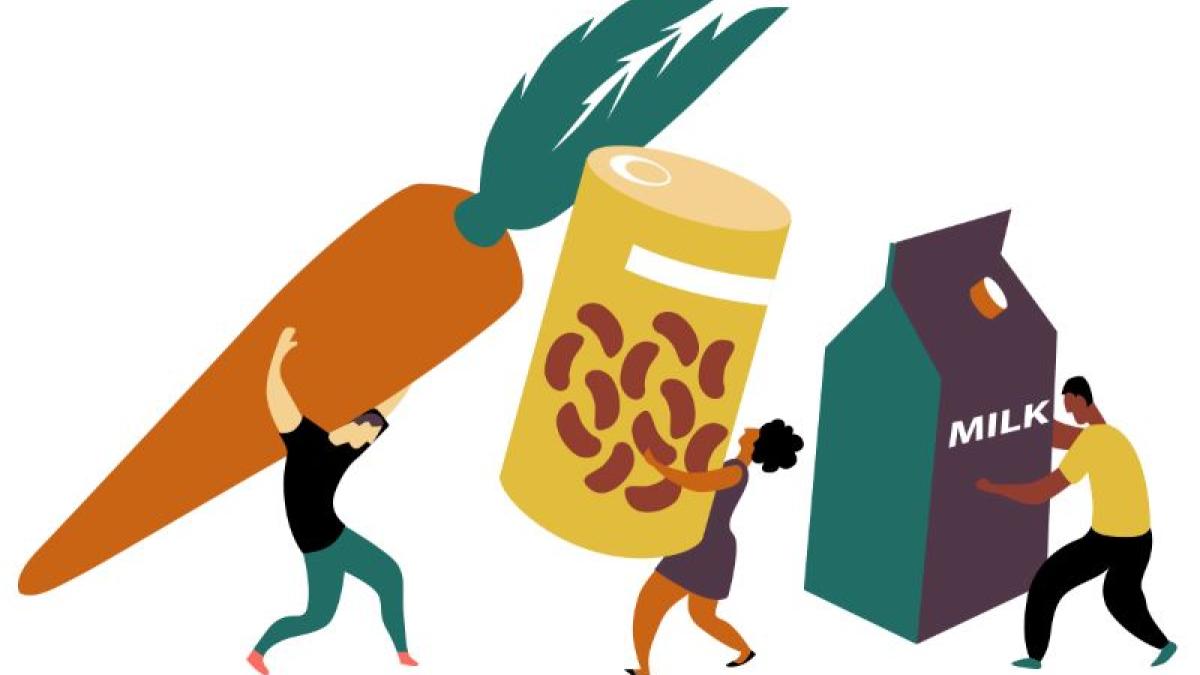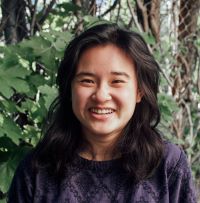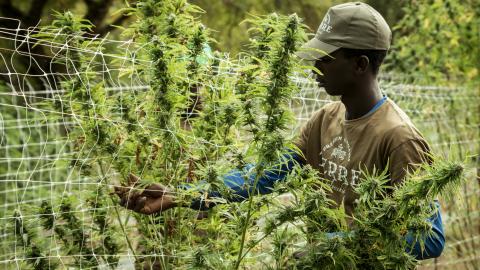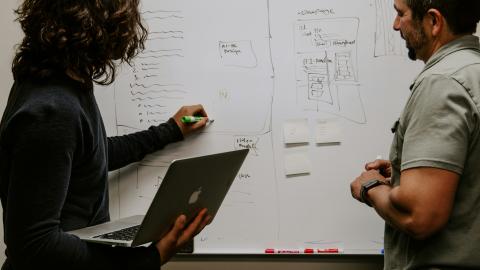
May 9, 2023
Jane Dai, MPH, is in her second year of the Health Services PhD program in the UW Department of Health Systems and Population Health. She is currently working on WAFOOD4, a project for the Washington State Department of Agriculture (WSDA) investigating economic security’s relationship to food insecurity.
Journey to health systems research
 Dai’s path from clinical nutrition to health systems research started at Williams College where she studied biology and psychology. Her undergraduate experience focused on the physiological mechanisms of eating and metabolism. Her interest in how people gather and build community around food led her to an MPH at Yale University studying social, behavioral sciences, and the community context of eating behavior. After her MPH, she worked with a team of nutrition policy researchers at Harvard where she looked at how non-food systems (e.g., transportation, housing, employment) affect food systems. At UW, she focuses on how different economic systems support food sovereignty and mental health, especially among immigrant communities.
Dai’s path from clinical nutrition to health systems research started at Williams College where she studied biology and psychology. Her undergraduate experience focused on the physiological mechanisms of eating and metabolism. Her interest in how people gather and build community around food led her to an MPH at Yale University studying social, behavioral sciences, and the community context of eating behavior. After her MPH, she worked with a team of nutrition policy researchers at Harvard where she looked at how non-food systems (e.g., transportation, housing, employment) affect food systems. At UW, she focuses on how different economic systems support food sovereignty and mental health, especially among immigrant communities.
Economic and food security during the COVID-19 pandemic
Under the direction of PIs Drs. Marie Spiker and Jennifer Otten and in collaboration with investigators at the University of Michigan and Washington State University, the WAFOOD4 team is analyzing survey data on how Washingtonians continue to recover from the COVID-19 pandemic and the impact of rising food prices, inflation, and economic changes on food security and wellbeing. The statewide survey began during the pandemic and is now on its fourth wave.
Early findings show that having the food that your family wants and needs for healthy living directly relates to your family’s economic resources (stable housing, stable income, sufficient income, reliable transportation) as well as access to community resources, like food banks. The survey also collects data that helps identify equity-based issues related to food assistance challenges.
The team prepared initial findings in WSDA brief featured in a School of Public Health blog post earlier this year. They are currently working on a second brief for WSDA focused on the survey’s economic security questions (ability to save, employment stability) and looking at changes in food security and expenditures across survey time points. The Washington State Legislature used the team’s work as evidence to support continued funding of local food assistance during the most recent session.
Dai highlights that a unique aspect of the project is that the team has surveyed the same people over the course of the pandemic. Many other COVID-19-related studies do not have this same longitudinal data, which is especially important as pandemic-era safety measures started ending.
Role and reflections as an early career researcher
In collaboration with another PhD student, Dai conducts the cross-sectional and longitudinal analyses for the briefs and in progress manuscript. She will also review similar economic security and food access studies in other states and cities in preparation for the manuscript.
Dai comments that many academic research teams have been turning to Slack for project communication/team-building and appreciates how effective it has been for this work. She emphasizes how Slack makes the process much more collaborative and engaging (and less scary) when everyone uses the same “partying cat” reaction to a message.
Next steps
As she moves into focusing on dissertation work, Dai will consider time—as an economic resource—to be a key dimension of people’s access to healthy food. Working on the WAFOOD4 project has reinforced her interest in understanding how systems of transportation, housing, and food all intersect to impact population health.




